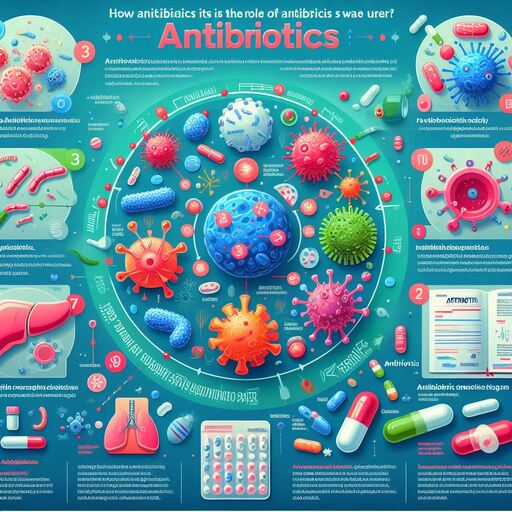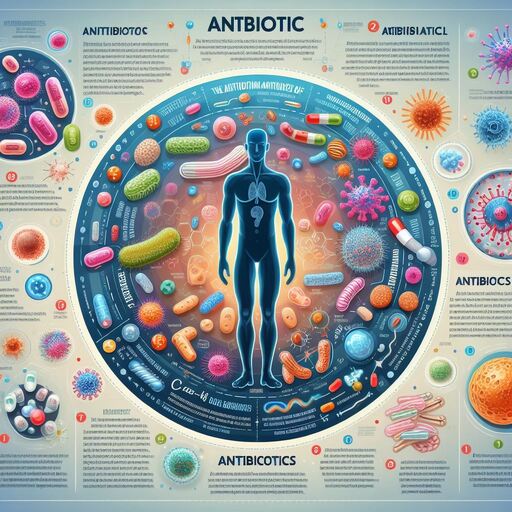The Role of Antibiotics in Modern Medicine
The Role of Antibiotics in Modern Medicine
Introduction: In the realm of modern medicine, few innovations have been as transformative as antibiotics. These remarkable medications, often referred to as the “healing hands” of healthcare, have revolutionized the treatment of bacterial infections and played a pivotal role in saving countless lives worldwide. In this article, we delve into the profound impact of antibiotics on modern medicine, exploring their mechanisms of action, therapeutic applications, and the challenges they face in an era of antibiotic resistance.
The Role of Antibiotics in Modern Medicine
The Birth of Antibiotics: The story of antibiotics begins with a serendipitous discovery by Sir Alexander Fleming in 1928. While conducting research on Staphylococcus bacteria, Fleming noticed that a mold called Penicillium notatum inhibited bacterial growth in a petri dish. This chance observation led to the isolation and purification of penicillin, the world’s first antibiotic. Subsequent research and development efforts paved the way for the discovery of a myriad of antibiotics, each with its unique spectrum of activity and therapeutic applications.
Mechanisms of Action: Antibiotics exert their therapeutic effects through various mechanisms, targeting specific components or processes essential for bacterial survival. For example, beta-lactam antibiotics such as penicillin and cephalosporins inhibit bacterial cell wall synthesis, leading to cell lysis and death. Other antibiotics, such as macrolides and fluoroquinolones, interfere with protein synthesis or DNA replication, disrupting bacterial growth and proliferation. By selectively targeting bacterial pathogens while sparing human cells, antibiotics provide a powerful tool for combating infectious diseases.
Therapeutic Applications: Antibiotics have a broad spectrum of therapeutic applications, ranging from mild infections to life-threatening diseases. They are routinely used to treat common bacterial infections such as strep throat, urinary tract infections, and skin infections. Additionally, antibiotics play a crucial role in managing more serious conditions such as pneumonia, sepsis, and bacterial meningitis. In surgical settings, prophylactic antibiotics are administered to prevent postoperative infections, reducing the risk of complications and improving patient outcomes.
The Role of Antibiotics in Modern Medicine
Public Health Impact: The widespread use of antibiotics has had a profound impact on public health, contributing to the control and eradication of infectious diseases on a global scale. Vaccines, sanitation measures, and antibiotics have played key roles in the decline of diseases such as tuberculosis, cholera, and syphilis, leading to improved health outcomes and increased life expectancy worldwide. Additionally, antibiotics have been instrumental in managing outbreaks of infectious diseases, such as bacterial meningitis or hospital-acquired infections, helping to contain the spread of pathogens and protect vulnerable populations.
Challenges and Considerations: Despite their immense therapeutic benefits, antibiotics are not without challenges. One of the most pressing concerns is the rise of antibiotic resistance—a natural evolutionary process fueled by the overuse and misuse of antibiotics. Antibiotic-resistant bacteria pose a significant threat to public health, as they are more difficult to treat and may require alternative or more potent antibiotics. To combat this threat, antimicrobial stewardship programs have been implemented to promote judicious antibiotic use, optimize prescribing practices, and minimize the development of resistance.
The Role of Antibiotics in Modern Medicine
The Future of Antibiotics: Looking ahead, the future of antibiotics lies in innovation and collaboration across scientific disciplines. Researchers are exploring novel drug targets, developing new antibiotics, and investigating alternative antimicrobial therapies such as phage therapy. Additionally, advances in genomics, proteomics, and artificial intelligence are providing new insights into bacterial pathogenesis and drug resistance mechanisms. By embracing these advancements and fostering global cooperation, we can ensure that antibiotics remain a cornerstone of modern medicine for generations to come.
Conclusion: Antibiotics have transformed the practice of modern medicine, offering hope and healing to millions of people around the world. From the humble beginnings of penicillin to the vast array of antibiotics available today, these medications continue to play a vital role in the treatment of bacterial infections. However, the rise of antibiotic resistance underscores the importance of responsible antibiotic use and continued investment in research and development. By working together to preserve the efficacy of antibiotics, we can ensure that they remain an indispensable tool in our fight against infectious diseases and continue to be the healing hands of modern medicine.
The Role of Antibiotics in Modern Medicine

